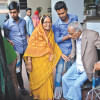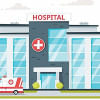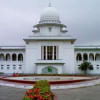Hospitals, diagnostic centres: 95% pvt facilities running without renewed licences

Thousands of private hospitals, clinics and diagnostic centres continue to operate without renewing licences due to lax monitoring by the authorities, raising serious concerns over patient safety and quality of treatment.
Out of 19,627 registered private hospitals and clinics across the country, only 914 or 4.66 percent renewed their licences till April 27 this fiscal year. The number was 2,754 in fiscal 2023-24, shows data of the Directorate General of Health Services (DGHS).
Similarly, 1,790 or around 5 percent of the 35,597 private diagnostic centres renewed licences so far, compared to 5,735 last fiscal year.
Annual licence renewal is intended to ensure that medical facilities meet standards for safety, staffing, hygiene, and other requirements -- areas where many healthcare providers often fall short.
Health experts warned that the failure of a vast number of medical facilities to renew licences poses serious risks to patient safety and undermines the quality of healthcare and hygiene.
Patients may receive subpar treatment, and a lack of oversight could lead to the use of substandard medical equipment or unsafe practices, they cautioned.
It is mandatory for every private hospital, clinic, and diagnostic centre to renew its licence annually. Failure to do so may result in closure of medical facilities for non-compliance.
The renewal process starts with an online application from a health service provider, after which a government committee recommends approval based on an inspection of the medical facility.
To complete the renewal, the health service provider must submit several documents, including an updated trade licence, income tax certificate, and environmental and narcotics clearance.
This correspondent spoke to four DGHS directors to understand the reasons behind the low number of licence renewals.
One of the directors said the submission of an environmental clearance certificate was recently made mandatory for renewal. Previously, healthcare facilities could submit proof that they had applied for clearance, and that was deemed sufficient.
"Obtaining a clearance certificate takes a considerable amount of time," the official said seeking anonymity.
A divisional director pointed out that the DGHS lacks dedicated manpower to inspect the huge number of healthcare facilities, often resulting in a backlog of applications.
Another DGHS official, on the condition of anonymity, said that previously, vehicles and fuel needed for inspections of healthcare facilities were funded under a special arrangement.
"But that arrangement is no longer in place, which is hampering the process."
Several health officials said that many service providers often take advantage of the authorities' failure to inspect the facilities timely due to manpower shortage. They simply submit applications without the necessary or up-to-date documents and continue operations.
Service providers are now demanding that the government ease regulations to let them renew licences every two years, they added.
Contacted, Abu Hussain Md Moinul Ahsan, director (hospitals) at the DGHS, said, "Many applications are pending because the hospitals or diagnostic centres concerned have failed to submit up-to-date documents."
The designated committees are gradually inspecting healthcare facilities, he said, expressing hope that the number of licence renewals will increase significantly by the end of this fiscal year.
ABM Haroon, acting president of Bangladesh Private Hospital, Clinic and Diagnostic Owners Association, claimed that 90 percent of the hospitals and diagnostic centres have submitted applications for licence renewal.
"But renewal is getting delayed as the DGHS lacks necessary manpower for inspection of facilities," he told The Daily Star on April 29.
"Besides, it takes a long time to obtain environmental and narcotics clearance, which further slows down the renewal process."
He said they requested the government to allow them to renew licences biennially, citing the ongoing manpower crisis at the DGHS.
Responding to a query, he said that a medical facility running without a renewed licence risks closure for non-compliance. However, the authorities take such action only in cases of serious irregularities.
Prof MA Faiz, former director general of the DGHS, said the number of health facilities has increased significantly over the years but the health authority's capacity to monitor their quality of service has not improved much.
"Those who are running hospitals or diagnostic centres also have responsibility here … No facility should be operating without an updated licence."
Once a licence is renewed, it becomes possible to verify whether a hospital or diagnostic centre has the required manpower, equipment, and other essential components in place, he noted.
People pay for services, but they often have no idea about the actual condition of a medical facility. That's why inspection and licence renewal are necessary, he added.
Contacted, Prof Sayedur Rahman, special assistant to the chief adviser for the health ministry, said, "The shortage of manpower and resources needs to be addressed, and the system should be developed accordingly.
"It may not be possible to increase manpower and resources immediately. We are aware of the reality and will try to resolve the issues," he told this correspondent on April 29.
Asked about the service providers' demand for biennial licence renewal, he said, "This involves procedural and legal issues. There will be discussions before a decision is made in this regard."

 For all latest news, follow The Daily Star's Google News channel.
For all latest news, follow The Daily Star's Google News channel. 








Comments